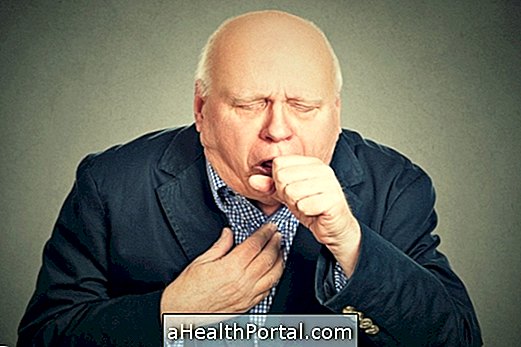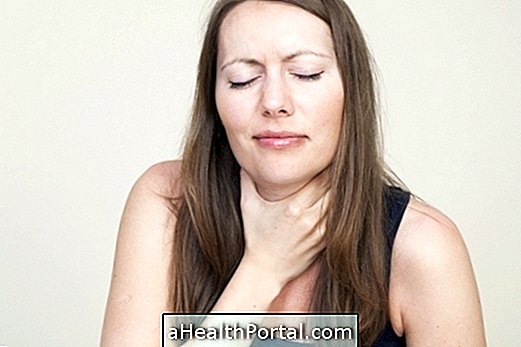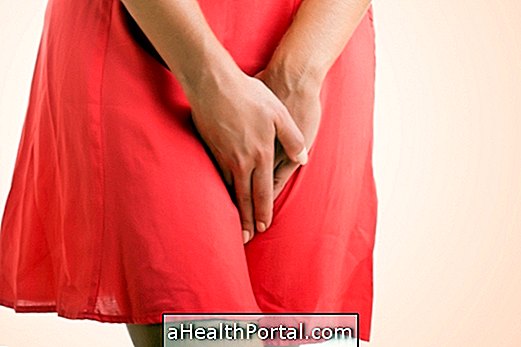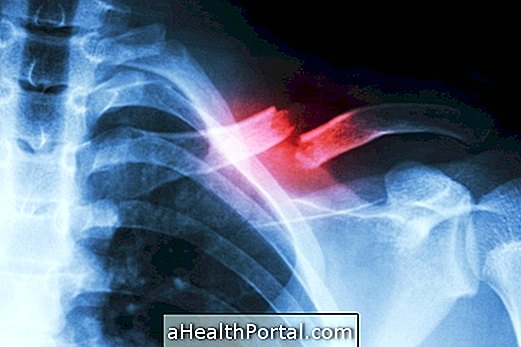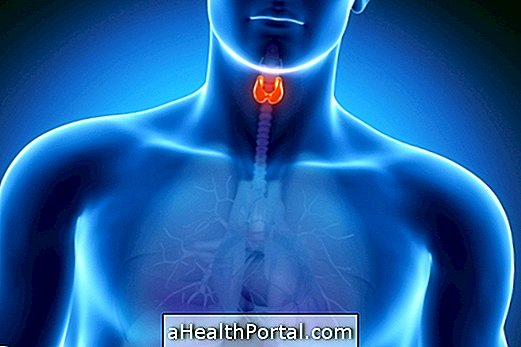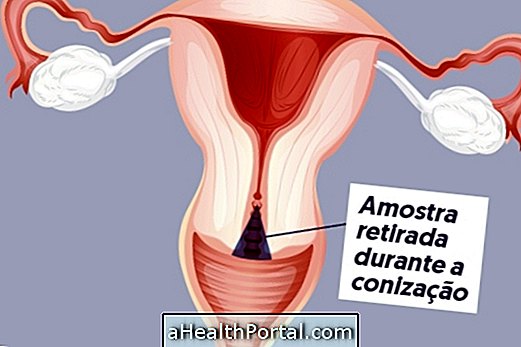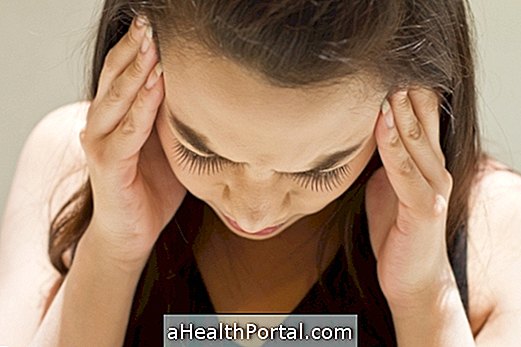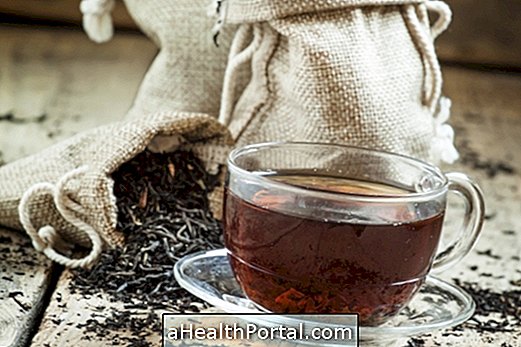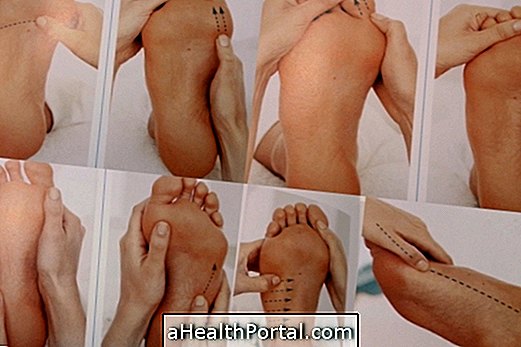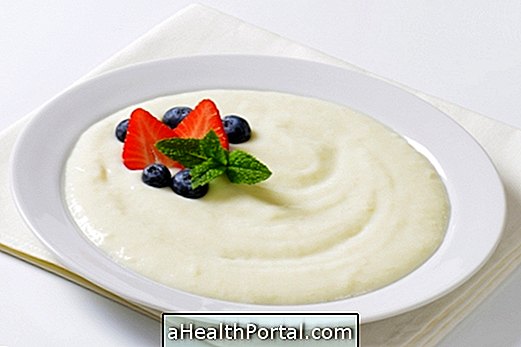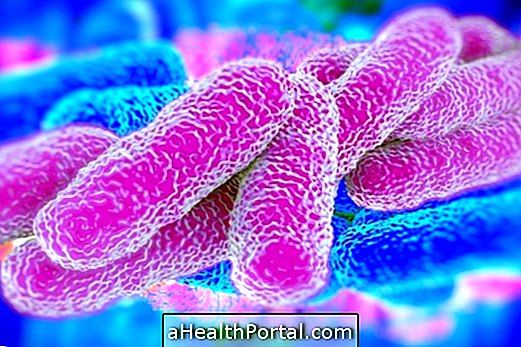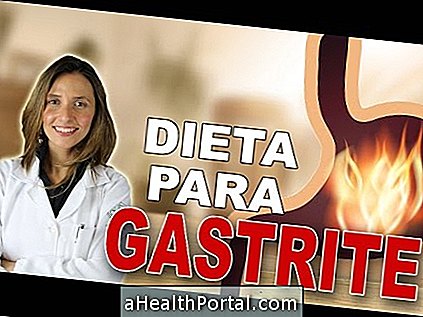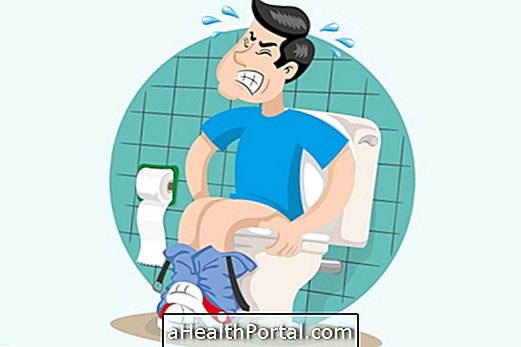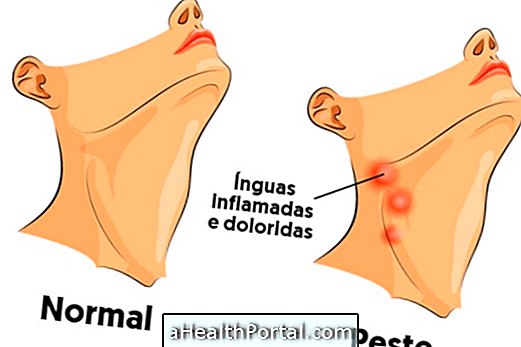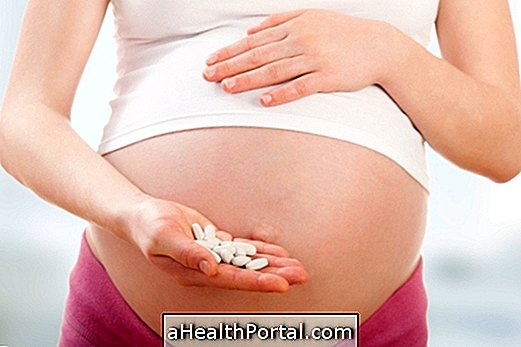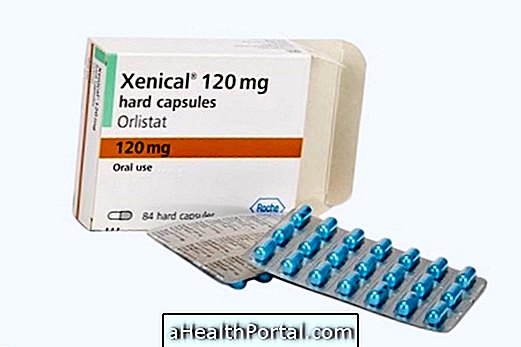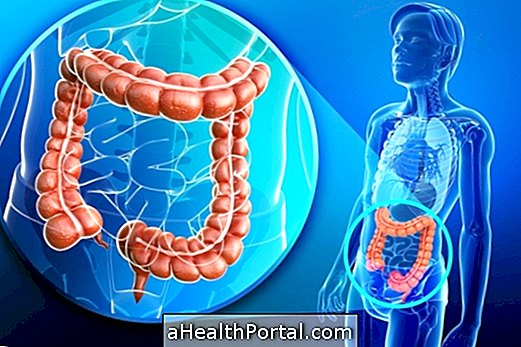E. coli is a naturally occurring bacterium in the intestines of humans and some animals, but in large quantities can cause problems such as gastroenteritis or urinary tract infection, depending on whether the excess of bacteria has arisen in the intestine or urinary tract and is mainly, when you consume water or contaminated food.
So always clean the food, especially raw salads, do not reheat the food already ready more than once, always consume filtered or boiled water and wash your hands well before and after using the toilet.
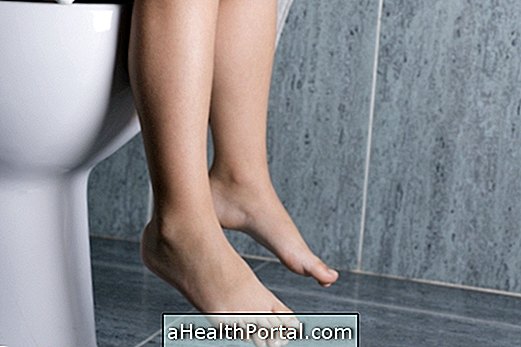
Symptoms of Intestinal Infection by E. coli
The intestinal infection caused by E. coli is a gastroenteritis that, when it is caused by other viruses, can be cured at home with care in food and rest. However, when it is caused by E. coli, antibiotics are usually needed. So if the symptoms are not improving after 3 days, it is important to go to the doctor to find out if it is an E. coli infection and start using the antibiotic.
To know if there is a risk of having gastroenteritis, select your symptoms:
- 1. Constant diarrhea Yes No
- 2. Stool with blood Yes No
- 3. Frequent abdominal pain or cramping Yes No
- 4. Nausea and vomiting Yes No
- 5. General malaise and tiredness Yes No
- 6. Fever below 38º C Yes No
- 7. Loss of appetite Yes No

Symptoms of E. coli urinary tract infection
These symptoms arise when excess E. coli affects the urinary tract and may include:
- Pain / burning when urinating;
- Too much urge to urinate with too little urine;
- Urine blurred;
- Strong unpleasant odor in the urine.
In addition, if bacteria affect the kidneys, it is also common to have a fever above 38 ° C, back pain and vomiting.
The urinary tract infection caused by this bacterium is more common in women because of the proximity of the anus to the vagina, making it easier to transmit the bacteria from one place to another. To prevent, the woman should drink plenty of water, avoid the constant use of showers in the vaginal region and clean that area in the direction of the vagina to the anus. See more tips in: 5 Rules for Intimate Hygiene and Avoiding Illness.
How is the treatment done?
The treatment for E. coli will depend on the symptoms and the age of the patient, but usually the intestinal infection caused by this bacterium is treated with:
- Rest;
- Increased consumption of water, teas or juices;
- Light food, where preference is given to the consumption of fruits, vegetables and vegetables;
- Pain-relieving analgesic medicines to relieve pain and discomfort;
- Remedy against nausea, to prevent nausea and vomiting.
In addition, if the patient experiences diarrhea with blood or other complications, the doctor may prescribe the use of antibiotics. The disease lasts on average 5 to 10 days and diarrhea usually improves from the 4th day. Learn what to eat to combat diarrhea.
In the case of urinary tract infection, treatment is done with the use of antibiotics and ingestion of at least 2 liters of water per day to assist in the elimination of the bacterium from the bladder. See more about treatment of urinary tract infection.
